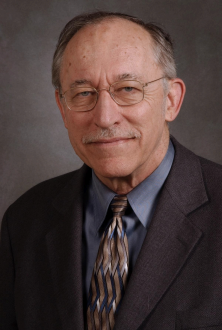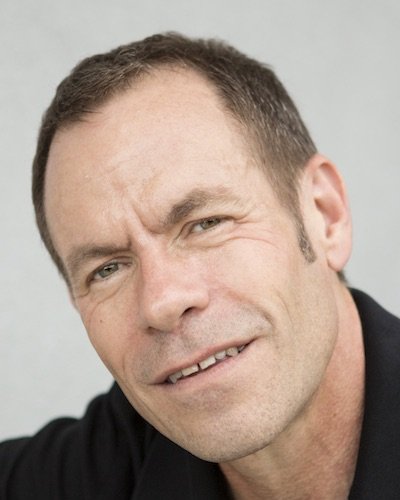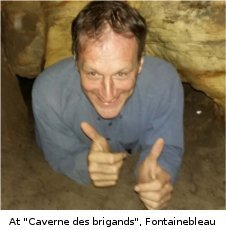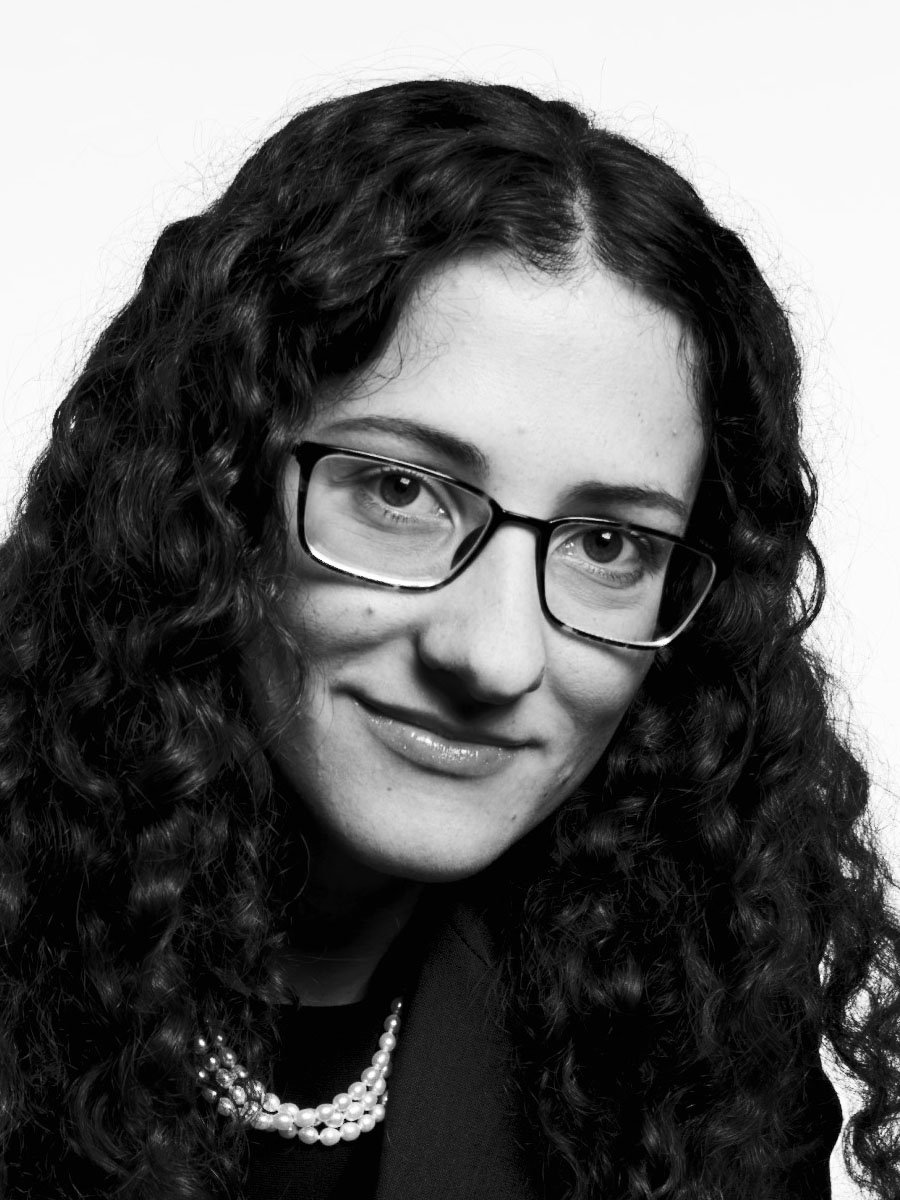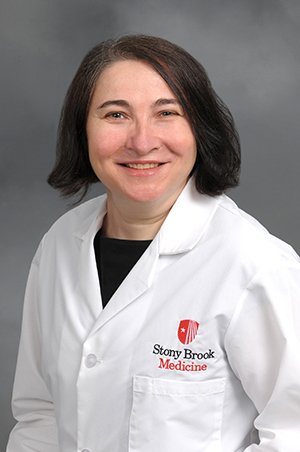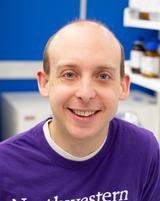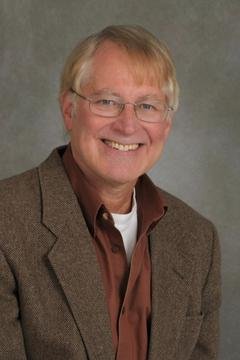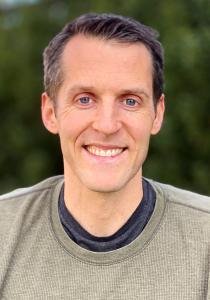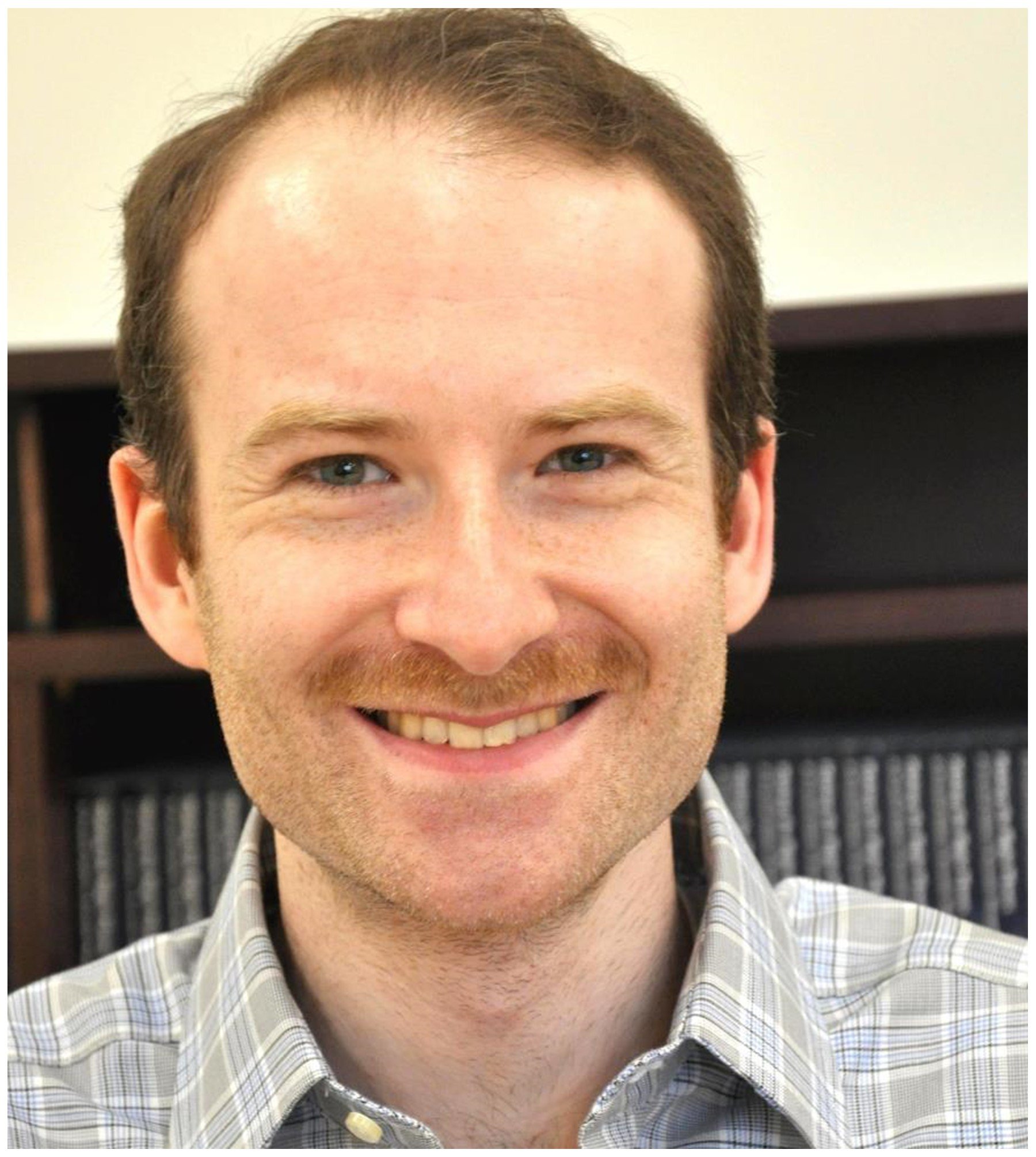
Listing of our past seminars (before 5/2024)
2024
| Speaker | Affiliation | Title | Date |
|---|---|---|---|
| Laufer Center
|
Laufer Center |
Celebrating the Legacy of a Pioneering Scientist in Chemical Biology: The Arthur P. Grollman Memorial Conference |
5/12/24 |
| Leemor Joshua-Tor
|
Cold Spring Harbor Laboratory |
Mad about U: regulating the let7 pre-miRNA |
5/11/24 |
| Michael Strevens
|
NYU |
The Highly Effective Irrationality of Science |
5/2/24 |
| Werner Krauth
|
CNRS and Laboratoire de Physique de l'Ecole Normale Supérieure, Paris |
Mixing, stopping, coupling, lifting, and other keys to the second Markov-chain revolution |
4/26 |
| Anna Tarakanova
|
University of Connecticut |
Molecular computation for bioengineering |
4/12 |
| Flaminia Talos
|
Stony Brook Medicine | New Insights into Prostate Cancer Heterogeneity from Mouse Models and Single Cell Transcriptomics Abstract |
3/29 |
| Gabriel Rocklin | Northwestern University | High-throughput discovery of protein folding stability and dynamics Abstract Video |
2/16 |
| Sruti Shiva | University of Pittsburgh | Platelet Bioenergetics: from marker to mechanism in vascular disease Abstract |
1/26 |
2023
| Speaker | Affiliation | Title | Date |
|---|---|---|---|
| Laufer Center, Stony Brook University | Career skills for PhD scientists Abstract Video |
11/16 | |
| University of Pittsburgh | Location bias in GPCR signaling Abstract Video |
10/27 | |
| University of Oregon | The evolution of kicking and screaming stochastic proteins Abstract Video |
9/22 | |
| Nicolaus Copernicus University |
How to avoid cell death by lipid peroxidation? Unraveling molecular mechanisms and inhibition of ferroptosis. |
6/2 | |
| University of Florida |
Modeling molecular recognition in flexible systems |
5/19 | |
| Nina Luning Prak | University of Pennsylvania |
Creating an atlas of B cell clones in health and disease |
5/12 |
| Max Staller | University of California at Berkeley |
Evolution of transcriptional activation domains |
5/5 |
| Qing Yu | Harvard University |
Unlocking the secrets of complex proteomes and molecular phenotypes |
5/1 |
| Harvard University |
Exploring and engineering the biological consequences of non-native protein conformations via single-molecule deep sequencing of polypeptides |
4/26 | |
| Simon Kretschmer | University of California, San Francisco |
Engineering protein-based switches for synthetic biology |
4/24 |
| Lina Carlini | Rockefeller University |
Mesoscale Mechanics of the Mitotic Spindle |
3/30 |
| Sonali Chaturvedi | University of California, San Francisco |
Antivirals with high genetic barriers to the evolution of resistance |
3/20 |
| Ilya Vakser | The University of Kansas |
Docking-based simulation of cell-size protein systems |
3/3 |
2022
| Speaker | Affiliation | Title | Date |
|---|---|---|---|
| Marc Kirschner | Harvard Medical School | Imputing cell circuitry from quantitative pharmacological perturbation, mass spectrometry, and machine learning Abstract Video |
3/25 |
| Marc Kirschner | Harvard Medical School | How cells control their size Abstract Video |
3/24 |
| Karmella Haynes | Emory University School of Medicine Atlanta, GA | Epigenetic Actuation: Engineered Chromatin Reader-Effectors for Gene Regulation in Cancer Abstract |
2/16 |
2021
| Speaker | Affiliation | Title | Date |
|---|---|---|---|
| Gregory Chirikjian | National University of Singapore |
Entropy, Lie Groups, and Structural Biology |
12/14 |
| Kateri H. DuBay | University of Virginia | On the Collective Behaviors of Oligomers: Implications for Self-Assembled Monolayers and Copolymer Sequences Abstract |
12/10 |
| Yinglong Miao | University of Kansas |
Accelerated Biomolecular Simulations and Drug Discovery |
11/05 |
| David M. Truong | New York University |
Programming Off-the-Shelf Human iPSCs using Genome Writing |
10/29 |
| Ed Boyden | MIT |
Tools for Analyzing and Controlling Complex Biological Systems |
10/22 |
| Stephen Fried | Johns Hopkins University |
Probing the Proteome’s Refoldability under Cellular-like Conditions with Mass Spectrometry |
09/24 |
| Jordan H. F. McKittrick | Cambridge University |
A Proposed Definition of Causal Information |
09/10 |
| Pratyush Tiwary | University of Maryland, College Park |
Can artificial intelligence help understand and predict molecular dynamics? |
06/04 |
| Richard Bonneau | NYU |
Integrating generative physical and deep learning approaches to navigate the structure-function-sequence triangle |
05/07 |
| Roy Nassar & Ken Dill | Laufer Center |
AlphaFold, and its recent successes in predicting protein structures in a blind competition called CASP |
04/29 |
| John Chodera | Memorial Sloan Kettering Cancer Center |
The COVID Moonshot: An open science collaboration to develop an orally bioavailable inhibitor of the SARS-CoV-2 main viral protease |
04/23 |
| Bin Zhang | MIT |
Phase Separation in Genome Organization |
04/16 |
| Nathalie Q. Balaban | The Hebrew University of Jerusalem |
Observation of universal dynamics in the recovery of single cells to stress |
04/01 |
| Alexander van Oudenaarden | Hubrecht Institute, Netherlands | Novel single-cell sequencing tools to explore cells in space and time Abstract Video |
03/12 |
| Uri Alon | Weizmann Institute of Science, Israel | Mathematical essence of aging Abstract Video |
02/05 |
| Adrian Roitberg | University of Florida |
Protein Simulations at constant pH. Sometimes a pKa is not a pKa |
01/28 |
2020
| Speaker | Affiliation | Title | Date |
|---|---|---|---|
| Margaret Cheung | Rice University |
From Protein Folding in vitro to Hierarchical Assemblies in vivo |
12/04 |
| Alexander Reyes | NYU |
Mechanisms underlying control and propagation of signals in neural networks |
11/20 |
| David Sivak | Simon Fraser University |
Design principles of molecular machines: efficient control and functional internal coupling |
10/30 |
| Pamela Silver | Harvard Medical School |
Predictable design at the human interface |
10/28 |
| Mani Larijjani | Simons Fraser University |
5-Dimensional Description of Genome-Editing Enzymes Involved in Immunity, Cancer and Evolution of Viruses |
10/02 |
| Vikram Mulligan | Flatiron Institute |
Development of computational methods for rationally designing macrocyclic peptide therapeutics |
09/18 |
| Steffen Lindert | Ohio State University | Computational Protein Structure Prediction from Mass Spectrometry Data Abstract Video |
02/28 |
| Teun Hoevenaars | Lund University, Sweden | Linearization of Protein Loop Motion Abstract Video |
02/12 |
2019
| Speaker | Affiliation | Title | Date |
|---|---|---|---|
| Sander Tans | AMOLF Amsterdam, The Netherlands | Chaperone-guided folding of single proteins | 12/06 |
| Tom Kurtzman | Lehman College, Bronx, NY | Exploiting active site solvation structure and thermodynamics for drug discovery and design Video |
11/22 |
| Mark Goulian | University of Pennsylvania | Hedging bets in bacterial signal transduction Video |
11/08 |
| Chao Tang | Peking University Beijing, China | Bacteria, stem cells and fruit flies: a physicist in biology Video |
10/11 |
| Andriy Baumketner | Institute for Condensed Matter Physics of the National Academy of Sciences of Ukraine | Theoretical studies of protein aggregation | 09/13 |
| Ron Zuckermann | Lawrence Berkeley National Laboratory Berkeley, CA | How to build atomically defined nanostructures from sequence-defined peptoid polymers Video |
09/12 |
| Kingshuk Ghosh | University of Denver, CO | Theoretical polymer physics reveals hidden codes in protein sequences to alter disordered states Video |
07/22 |
| Yibing Shan | D. E. Shaw Research, NYC | Structural modeling of large biomolecular assemblies--case studies on full-length JAK2 kinase and on Ras-Raf signalosome | 07/02 |
| Huan-Xiang Zhou | University of Illinois at Chicago | Physical Basis of Protein Liquid-Liquid Phase Separation | 06/27 |
| Yura Kalyuzhnyi | National Academy of Sciences of Ukraine | A brief introduction to Wertheim's multi-density theory for associating fluids Video |
05/31 |
| Yura Kalyuzhnyi | National Academy of Sciences of Ukraine | Explicit-water theory for the salt-specific effects and Hofmeister series in protein solutions Video |
05/23 |
| Naama Brenner | Israel Institute of Technology | Exploratory Adaptation in High-Dimensional Gene Expression Space Video |
05/17 |
| Saeed Tavazoie | Columbia University | Gene regulation beyond the standard model: Adaptive reprogramming of gene expression by trial and error | 05/10 |
| Eric R. May | University of Connecticut | Multiscale Modeling of Complex Systems and Processes Involving Peptides and Membranes Video |
05/03 |
| Tanja Kortemme | UCSF | Computational design of reprogrammed and new protein functions | 04/19 |
| Dave Thirumalai | University of Texas at Austin | Interphase Human Chromosome Exhibits Out of Equilibrium Glassy Dynamics Video |
03/15 |
| Daron M. Standley | Osaka University | Integration of protein sequence and structural data for prediction of biological function | 03/08 |
| Fyodor Kondrashov | Institute of Science and Technology (IST), Austria | How epistatic interactions shape the fitness landscape on a macroevolutionary scale Video |
02/25 |
| Alhaji Cherif | Renal Research Institute, NYC | Age-specificity and Limited Epitopes: Heterogeneity of immunity shapes strain-structured epidemics of antigenically variable infectious diseases. | 02/11 |
| Daniel Charlebois | Stony Brook University | Gene Networks and Drug Resistance: Breakthroughs Using Novel Model Systems Video |
01/03 |
2018
| Speaker | Affiliation | Title | Date |
|---|---|---|---|
| Adam P. Arkin | UC Berkeley | Discovery and Design of Genetic Factors for Microbial Function and Fitness in Complex Environments Video |
12/14 |
| Bob Austin | Princeton | WORKSHOP: Physical Biology Meets Cancer Cancer Tumors: The Ultimate Complex Adaptive Matter Video |
11/30 |
| Sui Huang | Institute for Systems Biology, Seattle | WORKSHOP: Physical Biology Meets Cancer From non-linear dynamics to single-cell transcriptomics of cell state transitions – Why Cancer Treatment Backfires… Video |
11/30 |
| Marsha Rosner | Univ of Chicago | WORKSHOP: Physical Biology Meets Cancer Rewiring Signaling Pathways in Cancer Cells |
11/30 |
| Gabor Balazsi | Laufer Center | WORKSHOP: Physical Biology Meets Cancer Control knobs, thresholds and cancer cell reprogramming Video |
11/30 |
| Sri Iyer-Biswas | Purdue University | Emergent laws governing stochastic single-cell dynamics | 11/20 |
| Chris A. Voigt | MIT | Genetic Circuit Design Automation Video |
11/19 |
| Alexey Onufriev | Virginia Tech | The nucleosome: from structure to function through physics | 11/16 |
| Sergei Grudinin | CNRS, France | Using Machine Learning and Integrative Approaches for Current Problems in Structural Biology |
11/13 |
| Sebastian Fürthauer | Flatiron Insitute, Simons Foundation | The mechanical basis of spindle self-organization Video |
11/09 |
| Claus Wilke | University of Texas at Austin | Structural and Functional Constraints on Protein Evolution Video |
10/19 |
| David Huggins | Cornell Medical School/Tri Institute Drug Discovery (NYC) | Estimating Atomic Contributions To Small-Molecule Hydration And Protein-Ligand Binding Using Free-Energy Perturbation | 09/21 |
| Lisa Tucker-Kellogg | Duke-NUS Medical School in Singapore | Evolution of Drug-Resistance in Cancer: Computational Modeling of Combination Treatment and the Dynamics of Cellular Subpopulations | 09/17 |
| Adam De Graff | Senior Scientist, Methuselah Health UK Ltd | Proteostasis Collapse is a Driver of Cell Aging & Death | 08/30 |
| Ora Schueler-Furman | Hebrew University, Hadassah Medical School | SMS (Short Motif Sequence) - mediated communication between proteins: structure-based characterization, modeling and manipulation Video |
08/24 |
| Damien Hall | Australian National University & Osaka University | Physical biochemistry of amyloidosis disease Video |
08/20 |
| Vincent Voelz | Temple University, Philadelphia PA | New Markov State Models approaches to folding, binding and design How I became a systems biologist Video |
07/19 |
| James E. Ferrell | Stanford University | Laufer Distinguished Lecturer (Lecture day 2) How I became a systems biologist Video |
04/24 |
| James E. Ferrell | Stanford University | Laufer Distinguished Lecturer (Lecture day 1) Trigger waves in cell signaling Video |
04/23 |
| Timothy Elston | University of North Carolina | Competition, coexistence and bistability in polarity establishment | 04/20 |
| Michael L. Simpson | University of Tennessee, Knoxville | Footprints in the Noise: Understanding gene circuit structure and function by analyzing fluctuations in expression Video |
04/06 |
| Huafeng Xu | D. E. Shaw Research | Cochaperones enable Hsp70 to fold proteins like a Maxwell's demon Video |
04/02 |
| Steve Presse | Arizona State University | New Mathematics for New Biophysics: A Foray into Bayesian Nonparametrics | 03/19 |
2017
| Speaker | Affiliation | Title | Date |
|---|---|---|---|
| Ilya Nemenman | Emory University | Playing Newton: Learning equations of motion from data Video |
12/08 |
| Sarah Rauscher | University of Toronto, Canada | Molecular Simulations of Intrinsically Disordered Proteins Video |
12/04 |
| Simon Mochrie | Yale | Towards in-vivo biochemistry Video |
12/01 |
| Sergey Ovchinnikov | Harvard University | Protein structure determination using metagenome sequence data Video |
11/30 |
| Bin He | Princeton University | Evolution of a Gene Regulatory Network Controlling Phosphate Starvation Response in a Commensal Yeast Video |
11/17 |
| Joachim O. Rädler | Ludwig-Maximilians-University München, Germany | Single Cell Time-Lapse Imaging on Micro-Arrays - gene expression kinetics and signaling pathways | 10/20 |
| Adam Siepel | Simons Center for Quantitative Biology Cold Spring Harbor Lab | New methods for measuring natural selection and predicting deleterious variants in noncoding regions of the human genome Video |
10/13 |
| David McCandlish | Simons Center for Quantitative Biology Cold Spring Harbor Lab | Modeling and understanding complex sequence-function relationships | 09/15 |
| Leor Weinberger | UCSF | The Cell’s Bunsen Burner: How Transcriptional Fluctuations Regulate Fate Video | 09/13 |
| Michael Manhart | Harvard University | Fitness is a many-splendored thing: molecular basis and ecological consequences of selection on multiple microbial growth traits | 06/27 |
| Greg Lang | Lehigh University, Bethlehem | Genome Evolution in Laboratory Populations of Yeast Video |
05/12 |
| Martin McCullagh | Colorado State University | Developing Accurate Implicit Solvent Models for the Simulation of Hydrophobic Aggregation Video |
04/28 |
| Kunihiko Kaneko | University of Tokyo | Deep Linearity in Phenotypic Adaptation and Evolution: Macroscopic Theory, Microscopic Simulations, and Bacterial Experiments Video |
04/21 |
| Steven Kleinstein | Yale School of Medicine | Analysis of B cell antibody repertoires from next-generation sequencing in multiple sclerosis and other diseases | 04/07 |
| Chris Bakal | The Institute of Cancer Research, London | Using Image-omics to understand the relationship between cell shape and transcription in cancer cells Video |
03/31 |
| Thierry Emonet | Yale University | Non-genetic diversity modulates population performance Video |
03/03 |
| Scott Hansen | University of California at Berkeley | Pattern formation and geometry sensing based on stochastic composition fluctuations in a kinase-phosphatase competition reaction | 02/24 |
| Adam Lauring | University of Michigan Medical School | Fidelity and mutational load in RNA virus evolution Video |
02/03 |
| Will Ratcliff | Georgia Institute of Technology | Exploring the origin of multicellularity through experimental evolution | 01/20 |
2016
| Speaker | Affiliation | Title | Date |
|---|---|---|---|
| Joshua Wand | University of Pennsylvania | Entropy in molecular recognition by proteins Video |
12/02 |
| Nicholas Hud | Georgia Tech | Seeking a plausible prebiotic solution (and solvent) for the origin of RNA Video |
11/18 |
| Tim Lohman | Washington University | How do helicases unwind DNA? Video |
11/04 |
| Jeff Skolnick | Georgia Institute of Technology | PROGNOSTIX: A pipeline for personalized diagnostics and drug treatments Video |
10/21 |
| Lanying Zeng | Texas A&M University | Subcellular Decision Making: Virus Interactions within the Cell Video |
10/14 |
| Robert S. Cantor | Dartmouth College | Synaptic neurotransmission, the mechanism of anesthesia, and the evolutionary origin of the need to sleep Video |
09/30 |
| David R. Walt | Tufts University | Microwell arrays as a platform for making Biological and Clinical measurements Video |
09/21 |
| Ken Dill | Laufer Center, Stony Brook University, NY | Careers Skills talk Video |
09/15 |
| Qinghua Wang | Baylor College of Medicine, Houston, Texas | Molecular Mechanisms of Actin Nucleation Video |
09/09 |
| Gerhard Stock | University of Freiburg | Energy and signal flow in biomolecules | 06/22 |
| Sanjay Jain | University of Delhi | Mathematical models of bacterial growth: Understanding cell size, composition and phenotypic variability | 06/21 |
| Ned Wingreen | Princeton University | Why so many feedbacks in Vibrio harveyi quorum sensing? Video |
05/20 |
| Mads Kaern | University of Ottawa, Canada | Systematic genome editing enables the identification of order within gene networks Video |
05/13 |
| Jonathon Howard | Yale School of Medicine | Movement of Cilia and Flagella Driven by Coordinated Molecular Motors | 05/06 |
| Dan Landau | Weill Cornell Medical College, New York Genome Center | Genetic and Epigenetic Determinants of Chronic Lymphocytic Leukemia Evolution Video |
04/29 |
| Nikolay Dokholyan | University of North Carolina at Chapel Hill | Allosteric control of protein function with disorder | 04/22 |
| Jeremy Schmit | Kansas State University | Amyloid aggregation from nanoseconds to decades Video |
04/18 |
| Murat Acar | Yale University | Systems level analysis of gene network activity for a dosage-compensating network | 04/15 |
| Qiang Cui | University of Wisconsin-Madison | Multi-scale models in biophysics: developments and applications Video |
04/08 |
| Lucas Carey | Universitat Pompeu Fabra Barcelona | The causes and consequences of non-genetic heterogeneity in cell proliferation Video |
04/06 |
| Avner Schlessinger | Icahn School of Medicine at Mount Sinai, New York | Ligand discovery for challenging targets from homology modeling and virtual screening Video |
03/25 |
| Thomas B. Kepler | Boston University School of Medicine | Evolutionary Dynamics in the Antibody Response Video |
03/11 |
| Timothy F. Kowalik | University of Massachusetts Medical School | Leveraging molecular biology and population genetics to reveal the natural history of clinically significant viral infections Video |
02/26 |
| Seogjoo Jang | City University of New York | Learning design principles for efficient and robust light harvesting from purple bacteria Video |
01/29 |
2015
| Speaker | Affiliation | Title | Date |
|---|---|---|---|
| James J. Collins | MIT | Laufer Distinguished Lecturer : Radical Approaches to Antibiotics and Antibiotic Research | 12/04 |
| James J. Collins | MIT | Laufer Distinguished Lecturer : Synthetic Biology: Redesigning Life | 12/03 |
| Audrey P. Gasch | University of Wisconsin - Madison | Exploiting the yeast stress-activated signaling network to inform on stress biology and disease signaling Video |
11/20 |
| Ulrich Zachariae | University of Dundee | Ion Channels and Receptors at Work: Atomistic Simulations of Membrane Proteins Under Voltage | 11/13 |
| Gavin Crooks | LBNL | Optimal Thermodynamic Control and the Dynamic Riemannian Geometry of Ising magnets | 10/30 |
| Judy Berman | Tel Aviv University | Molecular Microbiology & Biotechnology | 10/27 |
| David Botstein | Princeton | Laufer Distinguished Lecturer : Evolution and Cancer | 10/16 |
| David Botstein | Princeton | Laufer Distinguished Lecturer : Cellular Stress Response at the System Level in Yeast Video |
10/15 |
| Pratyush Tiwary | Columbia | Towards predictive pharmacodynamics simulations with recent developments in enhanced sampling. Video |
10/13 |
| Matt Jacobson | UCSF | Emerging challenges for computer-aided drug design: macrocycles and allosteric modulators. | 10/09 |
| Lane Votapka | UCSD | Multiscale Estimation of Binding Kinetics Using Brownian Dynamics, Molecular Dynamics, and Milestoning. Video |
10/05 |
| Jeremy L. England | MIT | Boltzmann's Dog and Darwin's Finch: Nonequilibrium statistical mechanics of self-replication and evolutionary adaptation. Video |
10/02 |
| Kent Kirshenbaum & Rich Bonneau | NYU | Folding Biomimetic Oligomers: Experiments Guided by Computation, Computation Guided by Experiment Video |
09/25 |
| Kevin C. Chen | Rutgers University | Predicting enhancer elements from human epigenomics data by spectral learning of Hidden Markov Models Video |
09/11 |
| Tomaz Urbic | University of Ljubljana, Slovenia | Thermodynamics and solvation properties of coarse grained model of water and methanol Video |
08/12 |
| Alan E. Mark | University of Queensland | Reconciling Theory and Experiment: The Search for Certainty in an Uncertain World Video |
07/28 |
| Modesto Orozco | University of Barcelona | The DNA: From the Electron to the Chromosome Video |
07/13 |
| Saeed Tavazoie | Columbia University | Decoding the regulatory genome | 05/15 |
| Elizabeth M. Boon | Stony Brook University | Nitric oxide regulation of bacterial biofilms | 04/24 |
| Michael Feig | Michigan State University | Structure and dynamics of biological macromolecules at cellular scales Video |
04/17 |
| Thomas Poulos | University of California, Irvine | Nitric Oxide Synthase as a Target for Structure Based Drug Design. Video |
04/10 |
| Eugene I. Shakhnovich | Harvard University | Biophysical Walks on Fitness Landscapes. Video |
04/08 |
| Lars E. P. Dietrich | Columbia University | Metabolic regulation of community behavior in Pseudomonas aeruginosa | 04/03 |
| Joseph Audie | SacredHeart University | Computer-enabled peptide drug design with CMDInventusSM Video |
03/23 |
| Richard M. White | Weill Cornell Medical College | Zebrafish as a model for tumor initiation and progression Video |
03/13 |
| Matthew R.Bennett | Rice University | Synthetic microbial consortia Video |
02/27 |
| Andy Feinberg | Johns Hopkins University | Epigenetic Stochasticity, Phenotype and the Environment | 02/06 |
| Mark Murcko | UCSF | Progress Towards Predicting Ligand Binding Free Energy Original Video from UCSF |
01/08 |
2014
| Speaker | Affiliation | Title | Date |
|---|---|---|---|
| Sergei Maslov | Brookhaven National Lab | Towards Predictive Modeling of Biological Networks and Evolution Video |
12/18 |
| Arjun Raj | University of Pennsylvania | Single molecule adventures in the life of a single cell Video |
12/12 |
| Yoshitake Sakae | Nagoya University | Force fields and conformational search methods for protein system Video |
12/11 |
| Andre Levchenko | Yale University | Information Bottlenecks in Signaling and the Virtues of Multicellularity Video |
12/05 |
| Rama Ranganathan | University of Texas Southwestern Medical Center | The Evolutionary "Design of Proteins" Video |
11/21 |
| Rohit V. Pappu | Washington University in St. Louis | Connecting form to function for intrinsically disordered proteins | 11/07 |
| Donald M. Engelman | Yale University | Targeting and treating acidic tumors using pHLIP, a membrane inserting peptide Video |
10/24 |
| Ivet Bahar | University of Pittsburgh | Learning from Computational Models, and Molecular and Systems Pharmacology Methods: Insights into Neurotransmitter Transport and Neuronal Autophagy Video |
10/16 |
| Ian Ehrenreich | University of Southern California | Contributions of higher-order genetic interactions to heritable traits Video |
10/10 |
| Olivier Elemento | Weill Cornell Medical College | The genomic and epigenomic evolution of cancer Video |
10/03 |
| Philip M. Kim | University of Toronto | Novel Drug Leads: Highly Parallel Screening of Disordered Peptide Motifs for Phenotypic Effects in Cells Video |
09/26 |
| Joao de Bivar Xavier | Memorial Sloan-Kettering Cancer Center | The Cancer Metabolic Microenvironment Video |
09/19 |
| Christine Vogel | New York University | Yeast ubiquitinomics -- cellular signaling during oxidative stress Video |
09/12 |
| Jeetain Mittal | Lehigh University | Simulations of biomolecular assembly processes at interfaces Video |
09/05 |
| Brandon S. Razooky | Oak Ridge National Laboratory | Regulation of HIV persistence: a stochastic, virally controlled process Video |
07/25 |
| Chris Sander | Computational Biology Center Memorial Sloan Kettering Cancer Center, New York City |
Laufer Distinguished Lecturer--Cancer systems biology and the design of combinatorial therapy |
06/03 |
| Chris Sander | Computational Biology Center Memorial Sloan Kettering Cancer Center, New York City |
Laufer Distinguished Lecturer--Physics meets biology |
06/02 |
| Firas Khatib | University of Massachusetts Dartmouth | Foldit: Scientific discovery by protein folding game players |
05/27 |
| Gabriel Rocklin | University of Washington | Designing protein structures de novo the Rosetta way |
05/22 |
| John D. Chodera | Memorial Sloan-Kettering Cancer Center | Redesigning Drug Design Video |
04/29 |
| Dave Thirumalai | University of Maryland | Stepping kinetics of Myosin motors: Moving forward, Backward, and foot Stomping Video |
04/22 |
| Marco Cosentino Lagomarsino | Université Pierre et Marie Curie | Statistical laws in genome evolution Video |
04/15 |
| Tack Kuntz | UCSF | Computation, Modeling & Evolution at UCSF: Past, Present, Future Original Video from UCSF |
04/03 |
| Shenshen Wang | MIT | Guiding Affinity Maturation to Generate Broadly Neutralizing Antibodies | 04/01 |
| Darrin York | Rutgers University |
Multiscale modeling methods to study RNA folding and catalysis |
03/25 |
| NYTaC3 | Stony Brook University |
Robert Rizzo, Stony Brook University: Strategies for lead discovery using footprint similarity scoring, Video
Ping Liu, BNL: Theoretical insight into heterogeneous catalysis at nanoscale, Video
Scott Auerbach, University of Massachusetts, Multiscale Modeling of Inorganic Nanopore Formation, Video
Ken Dill, Stony Brook University, The Principle of Maximum Caliber: a new way to look at Nonequilibrium Statmech
Themis Lazaridis, City College, CUNY, Studies of peptide translocation and pore formation in lipid bilayers, Video
George Makhatadze, Rensselaer Polytechnic Institute, Modulation of protein folding energy landscape by charge‐charge interactions: Experimental and computational studies, Video
Vikas Nanda , Rutgers University, Molecular Design of Collagen Higher‐Order Assembly, Video
Nandini Ananth, Cornell University, Path‐integral based dynamics for multi‐electron processes |
03/21 |
| Seth Horne | University of Pittsburgh | Biomimetic Agents and Designer Materials from Protein-like Molecules Beyond Nature’s Covalent Structures Video |
03/18 |
| Andrés Cisneros | Wayne State University | Insights on liquid systems and DNA repair from computational simulations Video |
03/11 |
| Daniel S. Fisher | Stanford University | How much sex is enough? | 02/12 |
| Ivet Bahar | University of Pittsburgh | Target flexibility, druggability and promiscuity: Major considerations in computer-aided drug discovery Video |
01/14 |
2013
| Speaker | Affiliation | Title | Date |
|---|---|---|---|
| Robert Best | NIDDK, National Institutes of Health | How important are non-native interactions for protein folding? Insights from all-atom simulations Video |
12/10 |
| Heather Carlson | University of Michigan | MixMD: Development of Accurate Methods for Mapping Protein Surfaces | 12/03 |
| Jesmin Jahan Tithi | Stony Brook University | Fast Polarization Energy on Multicores, Clusters of Multicores and GPUs | 11/26 |
| Haw Yang | Princeton University | Insights from Single-Molecule Protein Dynamics—Conformation Bias, Local Unfolding, and Architectural Encoding | 11/19 |
| Sagar D. Khare | Rutgers, The State University of New Jersey | Computational design of novel protein functions | 11/05 |
| Shekhar Garde | Rensselaer Polytechnic Institute | Water, Proteins, Interfaces, and Assembly: A New Molecular Perspective | 10/22 |
| John Karanicolas | University of Kansas | Designing chemical tools to modulate protein function Video |
10/10 |
| Dima Kozakov | Boston University | Global sampling of macromolecular association energy landscapes using Fast Fourier Transforms and their generalizations. | 09/18 |
| Jose Onuchic | Rice University | From Protein Folding to Molecular Machines of Life Video |
09/16 |
| Joseph Morrone | Columbia University | The role of molecular scale hydrodynamics in the kinetics of hydrophobic assembly Video |
07/24 |
| Qing Nie | UC Irvine | Robust and Stochastic Dynamics in Signal Transduction and Developmental Patterning Video |
04/30 |
| Mike Keiser | SeaChange Pharmaceuticals, Inc. | Predicting unexpected off-targets for approved drugs Video |
04/23 |
| Sasha Levy | Stanford University | High-throughput lineage tracking reveals complex population dynamics in response to environmental change Video |
04/09 |
| Chenghang Zong | Harvard | Whole Genome Amplification and Sequencing of Single Human Cells Video |
04/04 |
| Kirill Korolev | MIT | Ecology and evolution of cancer tumors and expanding populations Video |
03/28 |
| Richard W. Aldrich | University of Texas at Austin | Allosteric Gating of Voltage and Calcium Activated Potassium Channels | 03/26 |
| Lucas Carey | Weizmann Institute | Understanding DNA encoded mechanisms of regulation using high-throughput measurements of cell-to-cell variability Video |
03/13 |
| Daniel Dwyer | Boston University | Quantitative exploration of antibiotic-induced bacterial cell death physiology Video |
03/12 |
| Danielle Basset | University of California Santa Barbara | Network Architecture and Predictive Dynamics of Brain Systems | 03/07 |
| Jianhua Xing | Virginia Polytechnic Institute and State University | Physics meets biology: Simplicity out of complexity Video |
03/05 |
| Zachary Pincus | Yale University | Variability in Longevity and the Origins of Individuality Video |
02/26 |
| Vikas Nanda | Rutgers University | Computational design of protein misfits Video |
02/19 |
| David Mobley | University of California, Irvine | Calculating binding free energies from molecular simulations: Blind predictions, model binding sites, and automated planning Video |
02/12 |
| Joanna Slusky | Developmental Therapeutics Philadelphia | The ins and outs of charges in membrane proteins Video |
01/29 |
| Cheemeng Tan | Carnegie Mellon University | Creating Synthetic Biological Systems with Coupled Genetic and non-Genetic Control Elements Video |
01/22 |
2012
| Speaker | Affiliation | Title | Date |
|---|---|---|---|
| D. Allan Drummond | University of Chicago | Selection against protein aggregation at the proteome scale |
12/11 |
| Jie Xiao | Johns Hopkins University | Gene regulation at the single-molecule level: transcription factor and DNA looping Video |
11/13 |
| Gabor Balazsi | The University of Texas MD Anderson Cancer Center | Networks, noise and evolution: Lessons from synthetic gene circuits Video |
11/06 |
| Lingchong You | Duke University | The inoculum effect and band-pass bacterial response to periodic antibiotic treatment Video |
10/09 |
| Dave Mathews | University of Rochester Medical Center | 09/25 | |
| Guanyu Wang | George Washington University | Around Singularity, the Connections of Diseases Video |
09/18 |
| Brandon Xia | Boston University | Biological Networks in Three Dimensions Video |
09/11 |
| Ron Koder | CCNY | Engineering Artificial Protein Function Video |
09/04 |
| Claus Wilke | University of Texas at Austin | A structural perspective on protein molecular evolution Video |
08/28 |
| Julia Hockenmaier | University of Illinois at Urbana Champaign | Dynamic programming for ab-initio prediction of protein folding routes | 05/29 |
| Willy Wriggers | Weill Cornell Medical College | Emergent Complexity of Multiscale Computational Modeling | 04/24 |
| Adrian Roitberg | University of Florida,Gainesville | Sometimes a pKa is not a pKA. Protein Simulations at Constant pH | 04/17 |
| Yuhai Tu | IBM Watson Research Center | Systems biology of a simple organism: On E. coli's memory, computation, and energy cost | 03/20 |
| Jeffrey Gore | Massachusetts Institute of Technology | Cooperation, cheating, and collapse in microbial populations |
01/24 |
2011
| Speaker | Affiliation | Title | Date |
|---|---|---|---|
| Regis Pomes | University of Toronto | Aggregated Yet Disordered: Towards a Unified Model of Structure and Function in Self-Assembled Elastomeric Proteins |
12/13 |
| Markus Seeliger | Stony Brook University Medical School | Mechanism of a New Class of Highly Specific Src Inhibitors |
11/29 |
| Hue Sun Chan | University of Toronto | Cooperativity, Local-Nonlocal Coupling, and Nonnative Interactions in Protein Folding |
11/15 |
| Gregory A. Voth | University of Chicago | Theory and Simulation of Biomolecular Systems: Surmounting the Challenge of Bridging the Scales |
11/08 |
| Joel L. Sussman | Weizmann Institute of Science | Intrinsically Disordered Proteins: Why are they More Abundant in Higher Organisms? |
10/25 |
| Joanna Masel | University of Arizona | Molecular errors, cryptic genetic variation, and evolvability |
10/04 |
| Hong Qian | University of Washington | Mesoscopic Open Biochemical Reaction Systems and Delbruck-Gillespie Processes for Stochastic Biochemical Population Dynamics |
09/23 |
| Jhih-Wei Chu | University of California, Berkeley | Multiscale Simulation for Biomolecular Engineering: Protein Allostery and Cellulose Deconstruction |
09/14 |
| Koby Levy | Weizmann Institute of Science | Biophysics and evolution of post-translation modification |
06/13 |
| Purushottam Dixit | John Hopkins University | Thermodynamics of metal-protein interactions |
05/24 |
| Jiang Zhu | NIAID/NIH | Analyzing CD4 binding site-directed broadly neutralizing HIV-1 antibodies by 454 pyrosequencing and computational bioinformatics |
05/17 |
| Paul Matsudaira | National University of Singapore | Dynamics of nm-size droplets of water at the confined-bulk transition |
05/12 |
| Jorg Schwender | Brookhaven National Laboratory | Quantitative Analysis of Metabolic Fluxes in Plants |
05/03 |
| Ross Walker | University of California, San Diego | Supercomputer in a Desktop: Extreme Acceleration of Scientific Applications Using NVIDIA GPUs |
04/26 |
| Hao Ge | Fudan University | Stochastic dynamics in biochemical systems: from single-molecule kinetics to Chemical master equation | 04/21 |
| Sebastian Bernhardsson | Copenhagen University | Structural correlations in bacterial metabolic networks |
04/19 |
| Alexey Onufriev | Virginia Tech | The Simple Approaches to Complex Biology |
04/12 |
| Themis Lazaridis | City College of New York | Modeling Membrane Binding and Permeabilization by Antimicrobial Peptides |
03/22 |
| Ronald M. Levy | Rutgers University | Exploring landscapes for protein binding and folding using replica exchange dynamics, kinetic networks and Markov state models |
03/15 |
| Yan Li | Brookhaven National Laboratory | First-Principles Studies of Cellulose I: crystal structure, intermolecular interactions and water adsorption |
03/08 |
| Michael Schatz | Cold Spring Harbor Laboratory | Cloud Computing and the DNA Data Race |
02/15 |
2010
| Speaker | Affiliation | Title | Date |
|---|---|---|---|
| Marco Ceruso | The City College of New York, CUNY | Elnedin: a mixed coarse-grained molecular model for the simulation of protein dynamics and protein interactions | 11/30 |
| David R. Langley | Bristol-Myers Squibb Co., R&D | Three-dimensional models of the HIV-1 integration complex | 11/16 |
| Lee H. Woodcock | University of South Florida | Multiscale Modeling as an Avenue to Explore Enzyme Reactivity and Structure | 11/02 |
| Kenneth Foreman | Astellas Pharma | Industrial Strength Computational Chemistry | 10/19 |
| Wei Yang | Florida State University | High Order Generalized Ensemble Methods: A Possible Path to Quantitative Biomolecular Simulations | 10/12 |
| Bud Mishra | New York University | Detectability of Certain Dark-Genome-Matter Candidates: Algorithms for Assembling Genomes Correctly | 09/28 |
| Chris Sander | Memorial Sloan-Kettering Cancer Center | Systems Biology of Cancer Cells | 09/21 |
| Bill Jorgensen | Yale University | NYAS Chemical Biology Discussion Group Meeting | 06/08 |
| Emmanuel Mongodin | University of Maryland School of Medicine | Pan Genome of Borrelai burgdorferi | 05/18 |
| Marta Filizola | Mount Sinai School of Medicine | Molecular Recognition, Activation, and Functional Specificity of G-Protein Coupled Receptors as Assessed by Biased Molecular Dynamics | 05/04 |
| Distinguished Speakers | Stony Brook University Cancer Center and Department of Molecular Genetics & Microbiology Symposium | Cancer Stem Cells, Differentiation and Metastasis Symposium | 04/27 |
| Ken A. Dill | University of California, San Francisco | Nonequilibrium statistical mechanics of few-particle systems, such as in biology and nanotechnology | 04/13 |
| Roberto Sanchez | Mount Sinai School of Medicine | Identifying protein-ligand binding sites: combining physics and evolution | 04/06 |
| Tomas Lindahl | London Research Institute | 2010 ZICKLER LECTURE | 03/30 |
| Daniel Bogenhagen, MD | Pharmacological Sciences, Stony Brook University | Mitochondrial Molecular Systems Biology: From the Origins of Life to Human Disease | 03/16 |
| James Glimm | Applied Mathematics and Statistics, Stony Brook University | Parallel Computing: A Tutorial--Everything you wanted to know but were afraid to ask. | 03/15 |
| Danny Bluestein | Bioengineering, Stony Brook University | Numerical modeling approaches for optimizing cardiovascular devices and enhancing cardiovascular disease diagnostics | 03/09 |
| Yingkai Zhang | Chemistry, New York University | Multiscale Simulation of Histone Modifications |
03/02 |
| Wei Zhu | Applied Mathematics and Statistics, Stony Brook University | New Development in Pathway zhang | 02/23 |
| John R. True | Ecology and Evolution, Stony Brook University | The genome as an environment: the role of epistatic genes and networks in adaptation and speciation. | 02/09 |
2009
| Speaker | Affiliation | Title | Date |
|---|---|---|---|
| David Case | Chemistry & Chemical Biology, Rutgers University | Critical tests of the quality of protein molecular dynamics simulations in solution and crystals | 12/15 |
| Bernard Brooks | Laboratory of Computational Biology, National Institutes of Health/National Heart, Lung, and Blood Institute | Examining Protein Structure and Function using Multi-scale Methods | 12/08 |
| Steven Skiena | Computer Science, Stony Brook University | Genome Sequence Assembly and Synthetic Design: Better Reading and Writing through Algorithmetic | 12/01 |
| Ellen Li | Department of Medicine, Division of Gastroenterology and Hepatology; Stony Brook University | A novel pathway discovery and analysis paradigm for inflammatory bowel diseases | 11/24 |
| Charles M. Fortmann | Materials Science & Engineering; Stony Brook University | The biomechanics of protein folding and applications | 11/17 |
| Ken A. Dill | University of California at San Francisco | Exploring the physical principles of protein folding | 11/03 |
| Alex MacKerell | University of Maryland School of Pharmacy | Optimizing ligand-protein interactions via SILCS: Site Identification by Ligand Competitive Saturation | 10/27 |
| Eugene V. Koonin | National Institutes of Health | Systems biology and universals of genome evolution | 10/13 |
| DISTINGUISHED SPEAKERS | ICB&DD Symposium Frontiers in Chemical Biology and Drug Discovery | 10/06 | |
| Robert Jernigan | Iowa State University | Functional protein motions | 09/29 |
| DISTINGUISHED SPEAKERS | Laufer Center Inaugural Symposium | 09/25 | |
| Randy Jirtle | Department of Radiation Oncology, Duke University, Durham, NC | Epigenetics: The New Genetics of Disease Susceptibility | 05/19 |
| John Moult | Center for Advanced Research in Biotechnology, University of Maryland Biotechnology Institute | SNPs, Protein Structure, and Disease | 05/12 |
| William Studier | Brookhaven National Laboratory, Upton, NY | Learning from genome sequences of E. coli B and K | 05/05 |
| Andrea Califano | Center for Computational Biology and Bioinformatics, Columbia University Medical Center, New York, NY | Molecular Network analysis reveals master regulators of physiologic and pathologic human phenotypes | 04/28 |
| Nicholas Patterson | The Broad Institute, Cambridge, MA | Learning the Genetic History of South Asia from Genome-wide Data | 04/14 |
| Michael Hadjiargyrou | Stony Brook University, Stony Brook, NY | Unraveling the Molecular Basis of Bone Regeneration | 03/17 |
| Dax Fu | Brookhaven National Laboratory, Upton, NY | Novel metallochemistry in zinc transporters: integration of structural, functional and computational analyses | 03/10 |
| Steffen Mueller | Stony Brook University, Stony Brook, NY | Synthetic DNA technologies - perils and promise for the future of bioscience | 02/24 |
| Mickey Atwal | Cold Spring Harbor Laboratory, Cold Spring Harbor, NY | Natural Selection of Genetic Fidelity | 02/10 |
| Jin Wang | Stony Brook University, Stony Brook, NY | Potential landscape and flux framework of nonequilibrium networks: robustness, dissipation, and coherence of biochemical oscillations | 02/03 |
2008
| Speaker | Affiliation | Title | Date |
|---|---|---|---|
| Michael Zhang | Cold Spring Harbor Laboratory, Cold Spring Harbor, NY | Computational Dissection of Mammalian Regulation Subnetworks | 12/16 |
| Weigang Qiu | Department of Biological Sciences, Hunter College, New York, NY | Lineage-specific genomic variations in Lyme disease bacteria and implications for pathogenesis | 12/09 |
| David S. Eisenberg | University of California, Los Angeles, CA | Structural Insights into Amyloid and Prion Diseases | 11/25 |
| David Baker | Department of Biochemistry, University of Washington, Seattle, WA | 2008 ADRIEN ALBERT LECTURE - From prediction of structure to design of function | 11/21 |
| Arnold J. Levine | The Simons Center for Systems Biology, Institute for Advanced Study, Princeton, NJ | 2008 ZICKLER LECTURE - The p53 Pathway: Cancer, Fertility, Metabolic Control and the Central Nervous System | 11/11 |
| Bruce Futcher | Stony Brook University, Stony Brook, NY | Transcription Circuits, in Shades of Green and Red | 11/04 |
| Robert C. Rizzo | Stony Brook University, Stony Brook, NY | Characterization of drug resistance at the atomic level | 10/28 |
| Eli Hatchwell | Stony Brook University, Stony Brook, NY | The Future of Personalized Medicine | 10/21 |
| Stanley Fields | University of Washington, Seattle, WA | Footprinting the Genome | 10/17 |
| Uri Alon | Weizmann Institute of Science, Rehovot, Israel | Design Principles of Biological Circuits | 10/07 |
| John Reinitz | Stony Brook University, Stony Brook, NY | Canalization of transcription in the Drosophila blastoderm: from data to dynamical systems | 09/23 |
| Sergei Maslov | Brookhaven National Laboratory, Upton, NY | Modeling biomolecular networks: from metabolism and its regulation to protein-protein interactions | 09/16 |
| David F. Green | Stony Brook University, Stony Brook, NY | Applied protein design: Engineering molecular interactions in complex systems | 09/09 |
Recent Seminars (5/2024 - )
